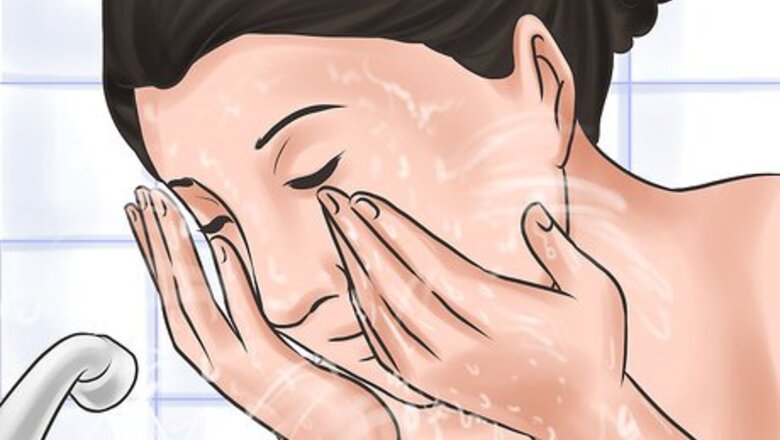
views
Washing Your Face

Splash your face with water. Since water is the base of most cleansers, splashing it on your face can help clean your skin without other products. However, be aware that using water only may not clean all of the excess dirt, debris, or oil off of your face. Use lukewarm or warm water to splash your face. Hot water may not only strip your skin of important oils, but may also burn it. Rub a washcloth soaked in warm water over your face. This can cleanse your skin while gently exfoliating dead skin and removing dirt and debris. Don't scrub too hard because you might damage your skin.
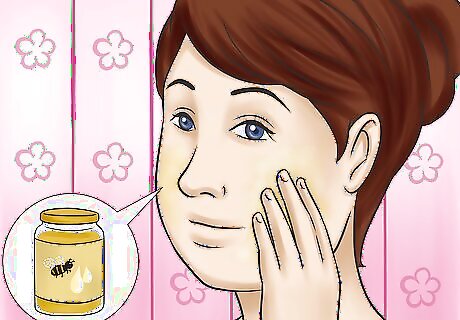
Spread honey on your face. Honey is a natural anti-bacterial and humectant, which means it will lock in moisture to your skin. Spread a thin layer of honey on to your face to clean and moisturize it. Use raw, unpasteurized honey for best results. Leave the honey on your face for a few minutes and then rinse it off with lukewarm water. Combine the honey with a teaspoon of baking soda to gently exfoliate your skin. You can also mix two teaspoons of honey with one teaspoon of fresh lemon juice to cleanse your skin.
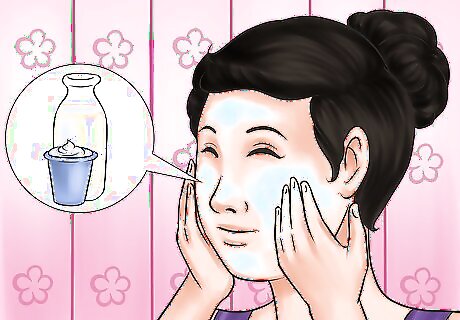
Massage yogurt or milk on your skin. Milk contains properties that can exfoliate and hydrate your skin. Gently massaging some yogurt or milk into your skin may not only clean off dirt and debris, but contribute to a glowing and healthy complexion. Use raw, whole milk or plain yogurt on your skin. Massage the yogurt or milk onto your face with your fingertips, which can also help clear away debris. Leave the milk or mixture on your face for a few minutes and rinse it off thoroughly with warm water.

Make an oatmeal paste. Oatmeal can gently exfoliate, cleanse, and soothe the skin. Make a skin-specific paste of oatmeal and gently apply it to your face. Grind ¼ cup of whole oats. Make sure you grind the flakes finely so that they don’t scratch your skin, which you can achieve using a coffee grinder. Mix the ground oats with 2 tablespoons whole-milk plain yogurt and one teaspoon honey for a mask that cleanses your skin. Leave on your skin for 15-20 minutes and rinse well with warm water.
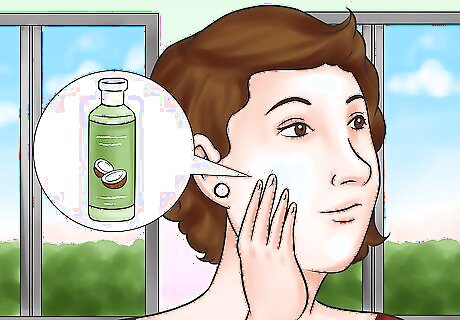
Try coconut oil. Apply a thin layer of coconut oil to your face and rinse it off with some water or a washcloth. This may clean off surface debris or oils and help moisturize your skin. Be aware that coconut oil may make your skin feel greasy, but it should absorb at some point of the day.
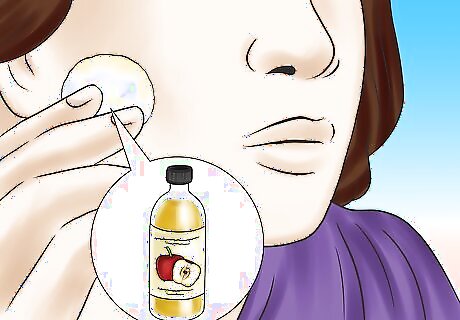
Apply raw apple cider vinegar. Apple cider vinegar can exfoliate and balance skin as well as calm and heal breakouts quickly. Apply a dilute mixture to your face with a cotton ball or pad to clean your skin. Dilute one part apple cider vinegar with two parts water. Apple cider vinegar can be harsh on skin, so this may be especially important for sensitive skin. Do a patch test of the mixture before applying it all over to ensure it doesn’t irritate your skin. Rinse your face off with cool to warm water after the application, which can help take the vinegar smell away. Moisturize your face after applying the vinegar as it may dry out your skin. Whitney Bowe Whitney Bowe, Integrative Dermatology Expert Natural products can be a great choice for the face, as they are often free of harsh chemicals and synthetic fragrances that can irritate the skin. Some natural ingredients, such as honey, aloe vera, and chamomile, have been used for centuries to soothe and heal the skin.
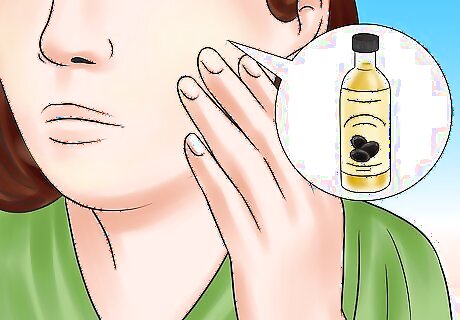
Use olive oil. Apply a thin layer of olive oil to your face. This may not only clean and moisturize your skin, but also calm any irritation, as olive oil is an anti-inflammatory. You can use any type of pure olive oil, though you may want to avoid products infused with scents or other flavors. Leave the olive oil on your face as it acts as a moisturizer in addition to a cleanser. Consider wiping away excess with a cloth if you put on too much. Mix ½ cup olive oil, with ¼ cup vinegar, and a ¼ cup water for an overnight mask.
Boosting Your Cleansing Regimen
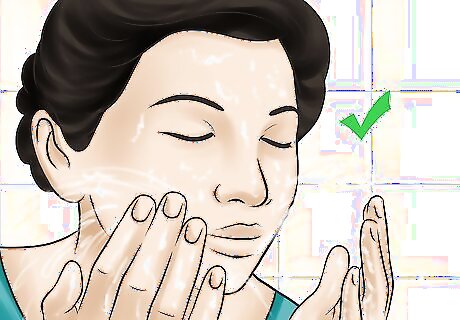
Cleanse regularly. Remove dirt, debris, and oil from your skin by cleansing it on a regular basis. This can help keep your skin healthy, glowing, and acne-free. Use cool to warm water to cleanse and rinse, as hot water can remove important oils from your skin or cause irritation.
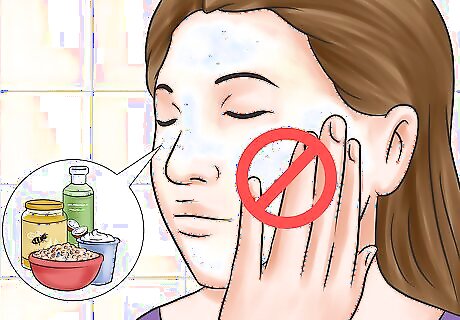
Avoid over-cleansing. Washing your face regularly is important, but don’t cleanse too often. This may irritate your skin and strip its oil. Wash acne-prone or greasy areas no more than twice a day unless you are active.
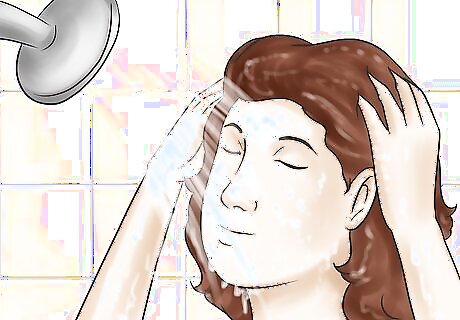
Shower after vigorous activities. If you exercise often or participate in vigorous activities, take a shower afterward. Sweat can produce oil or promote bacteria growth that could lead to breakouts.

Wear moisturizer. Apply a moisturizer after you’re done cleaning your face. Keeping your skin hydrated can boost the benefits of your cleanser regimen and keep your skin healthy and acne-free. Use a skin-specific moisturizer. Ask your dermatologist or skin care professional to tell you what your skin type is. Oily skin also requires moisturizer. Opt for an oil-free and non-comedogenic product. If you want to skip store-bought products with chemicals, consider using olive oil or coconut oil to keep your skin hydrated. If you have oily skin, you may want to skip oils and try a milk or yogurt mask.
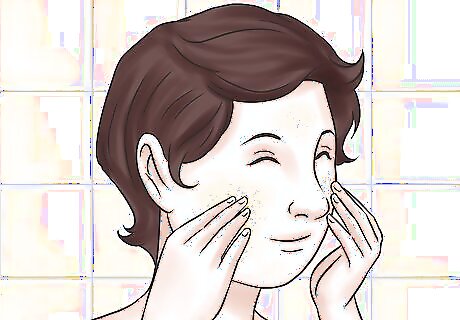
Exfoliate your skin. Dead skin and debris can promote the growth of bacteria and keep your skin from glowing. Rub gentle exfoliator on your face to help any cleanser penetrate your skin and promote a glowing complexion. Be aware that exfoliants only scrub away surface skin and can’t penetrate to remove dirt from your pores. Choose an exfoliator with either synthetic or natural beads to minimize irritation. Use natural products if you want to avoid chemicals. A soft washcloth or paste of sugar and water can also gently exfoliate your skin. Avoid salt, which may be too rough and scratch and burn your skin.
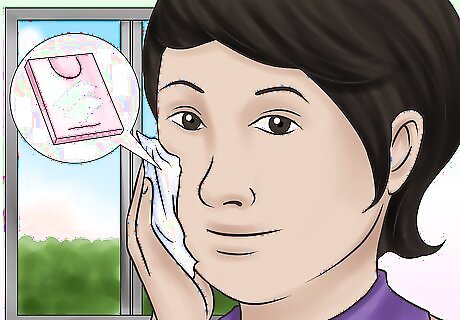
Absorb excess oil. Try different products to keep oil on your skin at bay. This may remove oil that is promoting acne or breakouts. Use an over the counter treatment of salicylic acid. Put on a clay mask once or twice a week, which may soak up oil. Apply an oil blotting paper to greasy areas on your face to absorb excess oil.
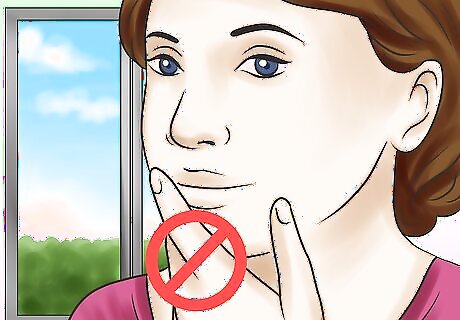
Avoid touching your face. Touching your face with your hands or fingers can spread dirt and bacteria on your skin. Keep your fingers and hands away from your face to minimize irritation or the spread of acne-causing elements on your skin. Be careful when you rest your hands on your face or chin, which can also spread dirt and bacteria and cause breakouts.
















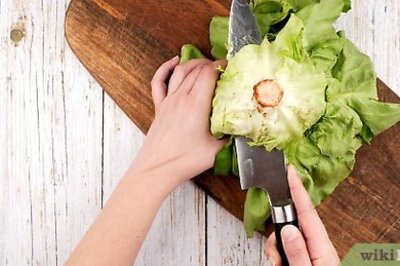

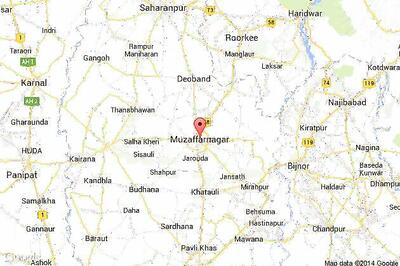

Comments
0 comment